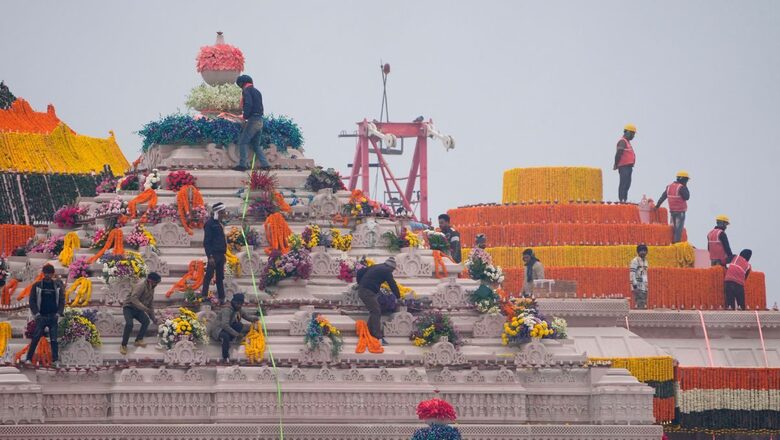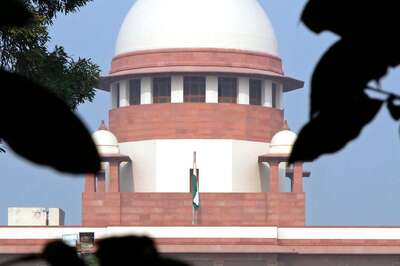
views
The Ram Lalla idol’s ‘pran pratishtha’ at the Ayodhya temple has indeed provided for a spiritual start to 2024, but it has also introduced several spiritual terms and phrases.
News18 decodes some of these terms for you:
Pran pratishtha: Out of the many others, the most common has been pran pratishtha, loosely associated with consecration. What does it exactly mean though? Pandit Laxmikant Dixit, a renowned Varanasi scholar of vedas, said the term refers to a Hindu ritual with profound significance, as it involves invoking a deity as an idol, thereby imbuing it with a sacred or divine essence. Pran means life, while pratishtha translates to establishment. He added that pran pratishtha can be understood as the “establishment of the life force” or the transformative act of “bringing the deity to life”.
Garbha Griha: One of the most popular terms is garbagriha, which translates into sanctum sanctorum. Dixit said it is a Sanskrit term in which garbha is literally derived from the word womb and griha means home. The garbhagriha is the part of the temple where the main idol is placed.
Yajman: Dixit further said in Hinduism, yajamana refers to the person who performs a religious ritual or ceremony, particularly a yajna (sacrificial ritual). “Yajamana plays a central role in the execution of the ritual and is responsible for ensuring its proper conduct, organisation, and execution. The yajamana holds a significant position in religious ceremonies and is considered the patron or host of the ritual,” he said. During the pran pratishtha of the Ram Lalla idol, the temple trust has nominated Prime Minister Narendra Modi as the mukhya (chief) yajman. Whereas for the pre-consecration, the trust has nominated Dr Anil Mishra, a senior member of the trust, and his wife during the six-day rituals.
Anushthan: Dixit said, while performing any ritual, there are a series of actions including mantra uccharan, reciting of hymns, mantras and activities. These sequential actions, which are performed during the ritual, are collectively referred to as anushthan.
Prayashchit Puja: The priest said the term prayashchit means seeking forgiveness or penance whereas puja means a religious ritual. It is a ceremony performed in Sanatan Dharma in which the person carrying out the pran pratishtha of the idol needs to carry it out, which is aimed at the purification of the soul.
Kalash pujan: Kalash pujan is a prominent ritual performed on auspicious occasions, including Navratri, Durga Puja, house warming or even while performing any major ceremony at temples. Dixit also said the water in the kalash represents the primordial water from which the entire creation emerged. It is believed that the water is the giver of life and the course of all forms and objects of creation, whereas the mango leaves symbolise creation. “Generally, in any religious ceremony, deities can be worshipped but the universe from which everything has emerged is not, hence kalash pujan is performed to worship the universe from which everything else has emerged,” he added.
Dhwaja dand: Dhwaja stambh or dhwaja dand or flag post is a pole erected at the top of the main structure of the temple. It is believed to be the connection between the garbhagriha of the temple and the universe. In the Ram temple, a dhwaja dand weighing 55 kg has been installed. “Dhwaja dand is perhaps the most important feature of any temple. What makes it important is that it can’t be replaced, it stays there as long as the temple exists. Other than that, the deity’s idol stays in a temple forever. In local parlance, it is believed that this flag pole connects the sanctum sanctorum to the universe and is designed to give positive energy to those seeking the blessings of the deity,” said Bharat Mewada, managing director of Shree Ambika Engineering Works in Gujarat’s Ahmedabad. His agency has prepared the dhwaja dand for the Ram temple.
















Comments
0 comment